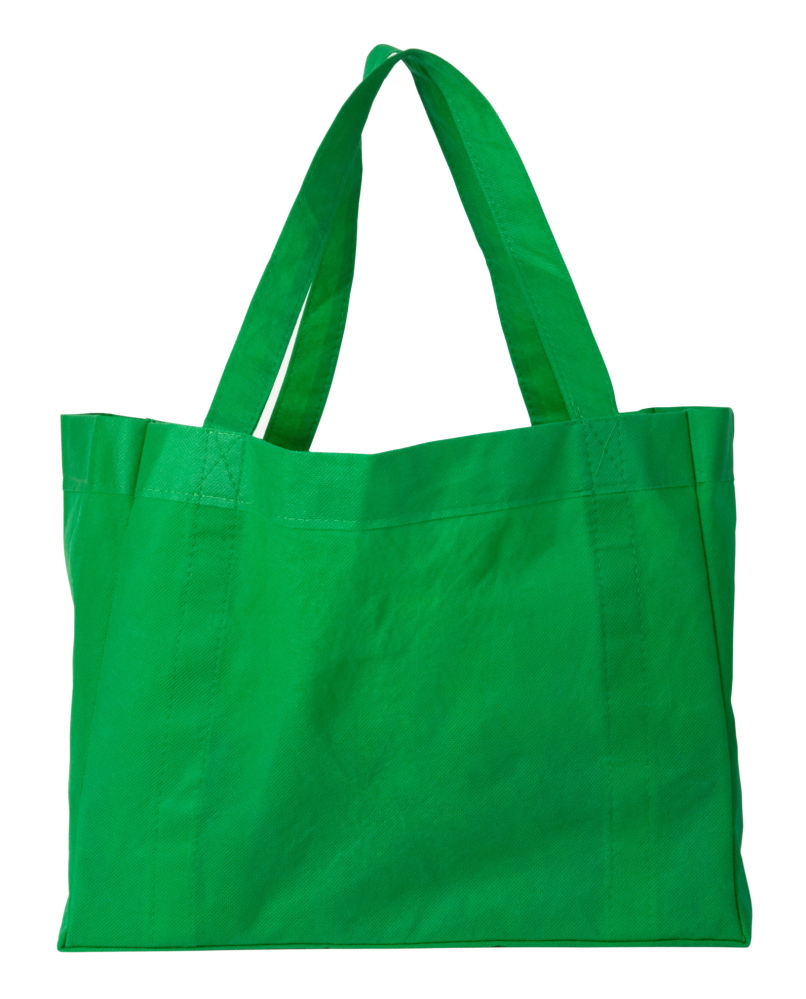Most people who own reusable grocery bags have to admit it – sometimes the totes don’t make it to the store. But does remembering to bring the bags warrant buying a tub of ice cream?
Some shoppers think so, according to a recently published Harvard Business School study.
The research showed that when people bring their own bags they buy both more organic products and more indulgent items, like ice cream and potato chips, than when they use the disposable bags provided at the register. The study used loyalty card and scanner information to track the customers of a California grocery store over two years and found that they shopped differently when they carried reusable bags.
The theory is that the bags represent the shoppers’ decision to do something positive for the environment. With that in mind, shoppers are more likely to make other green choices, such as picking out organic produce, and then to reward themselves for their good deed with a sweet or salty treat they wouldn’t otherwise buy.
We put the theory to the test locally with some unscientific polling of our own, scrutinizing grocery bags and questioning shoppers on a recent weekday at Hannaford in Portland.
Jason Ezze, 23, of South Portland said he’s more likely to pick up a box of doughnuts on a quick stop at the store, when he probably wouldn’t have reusable bags on hand.
The study considered the dates and times that shoppers were at the store and discounted what appeared to be unplanned trips, when people might be less conscientious about their purchases. Ezze said that when he plans his shopping trip, he brings his own bags and takes more care in choosing what he puts in his cart – which tends to be food that’s better for him.
“I think of buying healthier, more organic stuff as treating myself,” he said.
The research – by Harvard Business School Assistant Professor Uma Karmarkar and Bryan Bollinger, an assistant professor at New York University’s Stern School of Business – showed that the correlation between reusable bags and indulgent foods doesn’t apply to people with children at home.
Andrea Meadows, 29, of Freeport is evidence of that.
“I definitely don’t use it as a reward system,” said Meadows, who was shopping with her 4- and 2-year-old daughters.
“It just makes more sense to use them,” she said. “They also hold a whole lot more.”
That exemption doesn’t apply to husbands at home.
“He’d say, ‘There’s room in that bag for ice cream,’” said Denise Chadbourne, 54, of Portland.
For herself, Chadbourne said she tends to shop healthier when she brings her own bags, which is about 90 percent of the time.
“You’re doing something good for the environment, and you should do something good for yourself, too,” she said.
Hannaford can put the Harvard study’s conclusions to the test with a new line of reusable bags that hit its shelves this month.
Twenty-five cents from each bag bought in Maine will go to the Good Shepherd Food Bank – meaning customers who buy them can take credit both for saving the planet and for feeding the hungry.
If the research is reliable, stores better keep their cookie aisles stocked.
Contact Leslie Bridgers at 791-6364 or at:
Twitter: @lesliebridgers
Send questions/comments to the editors.




Success. Please wait for the page to reload. If the page does not reload within 5 seconds, please refresh the page.
Enter your email and password to access comments.
Hi, to comment on stories you must . This profile is in addition to your subscription and website login.
Already have a commenting profile? .
Invalid username/password.
Please check your email to confirm and complete your registration.
Only subscribers are eligible to post comments. Please subscribe or login first for digital access. Here’s why.
Use the form below to reset your password. When you've submitted your account email, we will send an email with a reset code.